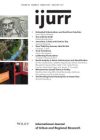This article explores the processes by which distinctive red‐light districts are created in western cities, focusing on the changing location of female prostitution in Birmingham (UK). Adapting Henri Lefebvre’s ideas on the production of space, as well as Michel de Certeau’s distinction between strategies and tactics, the article argues that the changing location of prostitution in the city is the result of a constant interplay between the ordering strategies enacted by the police, council and community protestors and the resistive tactics adopted by sex workers. The net outcome of this process, it is argued, is that a space is created for prostitution so that its resistive potential can be contained within a heterosexually‐ordered city. The article therefore concurs with Lefebvre when he argues that conceptualized space tends to overcode and dominate lived space, but concludes that sex work always threatens to create new ‘spaces of representation’ that challenge the heterosexual ordering of society.
Details
Written by:
Phil Hubbard, Teela Sanders
Digital Object Identifier (DOI)
10.1111/1468-2427.00432
About DOI
Read full article as PDF
Read full article as HTML
See the references for this article
